S.C. utilities push for more gas, ‘blank check,’ amid specter of past scandal
The scramble to increase supply has state lawmakers debating a fast-tracked bill that locks in new gas and undoes hard-won reforms
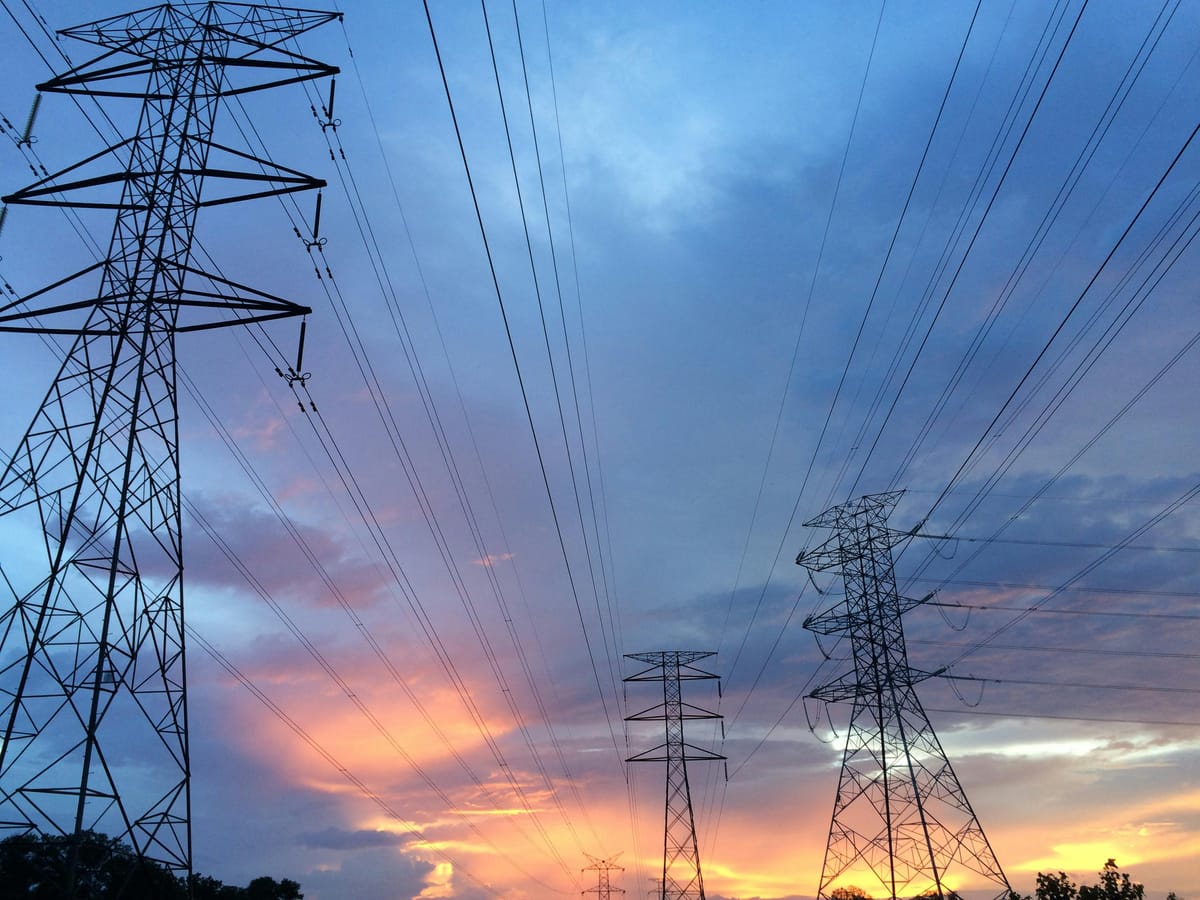
On Christmas 2022, a brutal cold snap cut power to 100,000 homes in South Carolina.
Winter Storm Elliott, as weather forecasters came to call the mass of Arctic air, forced frigid southerners to turn up the thermostat, spiking power demand.
The region’s grid teetered on the edge of a wider blackout, until an aluminum smelter near Charleston charitably agreed to an emergency curtailment of its power demand.
The episode put a fine point on a big problem: Energy supply in South Carolina is tight. It’s one of the fastest-growing states in the country, but it hasn’t added very much in the way of new generation since two of its utilities bungled the construction of a nuclear reactor — resulting in criminal convictions of two top power company officials and a multibillion-dollar bill for customers.
To make the situation more acute, power companies there are hoping to retire a pair of old polluting coal plants.
So, two years after winter storm Elliott, South Carolina lawmakers are considering a massive energy policy overhaul. Its sponsors have titled it the “South Carolina Ten-Year Energy Transformation Act” and argue its provisions are necessary for economic growth. Detractors counter that it's a power company “wish list” that would hurt consumers — and the climate.
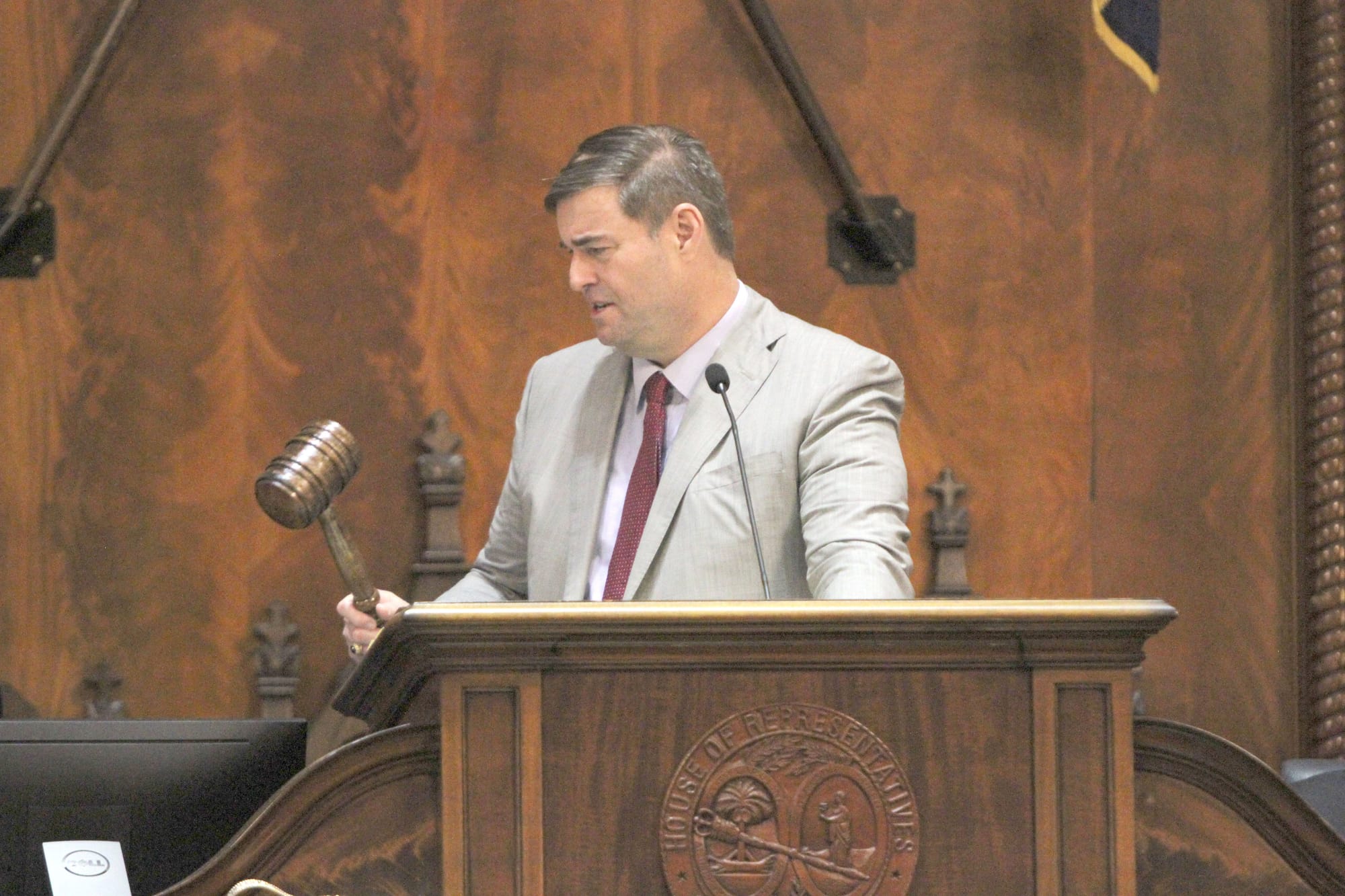
'A lengthy wish list'
If passed, the fast-moving legislation would accomplish two big things. First, the bill would roll back hard-won consumer protections put in place by lawmakers in the wake of that bungled nuclear construction effort, which cost the state’s electricity customers nearly $2.3 billion.
Second, it would increase the Palmetto State’s dependence on methane gas as a source of power generation, even as the burning of that harmful greenhouse gas accelerates the drowning of the South Carolina’s low-lying coast.
The bill would cut the number of energy regulators on the South Carolina Public Service Commission from seven to three. And it would allow those three commissioners to communicate with utility companies in private — a currently-banned practice known as ex-parte communication.
If passed into law, the bill also would force the energy regulators to give greater weight to testimony from power companies during regulatory proceedings. And it would place the state’s consumer advocate — currently tasked with independently looking out for the little guy in complicated energy proceedings — under the command of a shrunken Public Service Commission.
The proposal prompted a long-time commissioner to resign in disgust, calling the bill a costly “blank check” that customers will have to pay.
“What this bill really is, is a lengthy wish list of things that the utilities’ own lawyers and the gas industry have wanted,” said Eddy Moore, decarbonization director for the Southern Alliance for Clean Energy. “And using the simple story that we have growth, economic growth, and we need more power, they've piled all this other stuff on.”
Bill dubbed ‘profiteering’
The legislation sailed through the state House of Representatives, passing on a bipartisan 82-21 vote. One reason the bill may enjoy such broad support: Utilities have made about $800,000 in campaign contributions to members and caucuses of both parties in that chamber since 2020, according to a Floodlight analysis of South Carolina campaign finance data.
The bill then raced out of committee in the Senate so quickly that some senators admitted to not even having read it before voting to move it to the floor. Utilities have given some $700,000 to Senate member campaigns and caucuses in the past four years, Floodlight found.
These totals do not include any dark-money or other “independent” expenditures that utilities may have made on their behalf — spending that can often dwarf that of the candidates’ own campaigns. Nor does it include spending by partisan political committees, which South Carolina does not track.
But now, with less than a week left to go in South Carolina’s spring legislative session, the energy overhaul has found itself put on ice by lawmakers who keenly remember the consequences of the state’s nuclear boondoggle. “I’m okay with profit,” South Carolina GOP Senate Majority Leader Shane Massey, who leads the lawmakers delaying the bill, said in an interview with Floodlight. “I’m not okay with profiteering.”
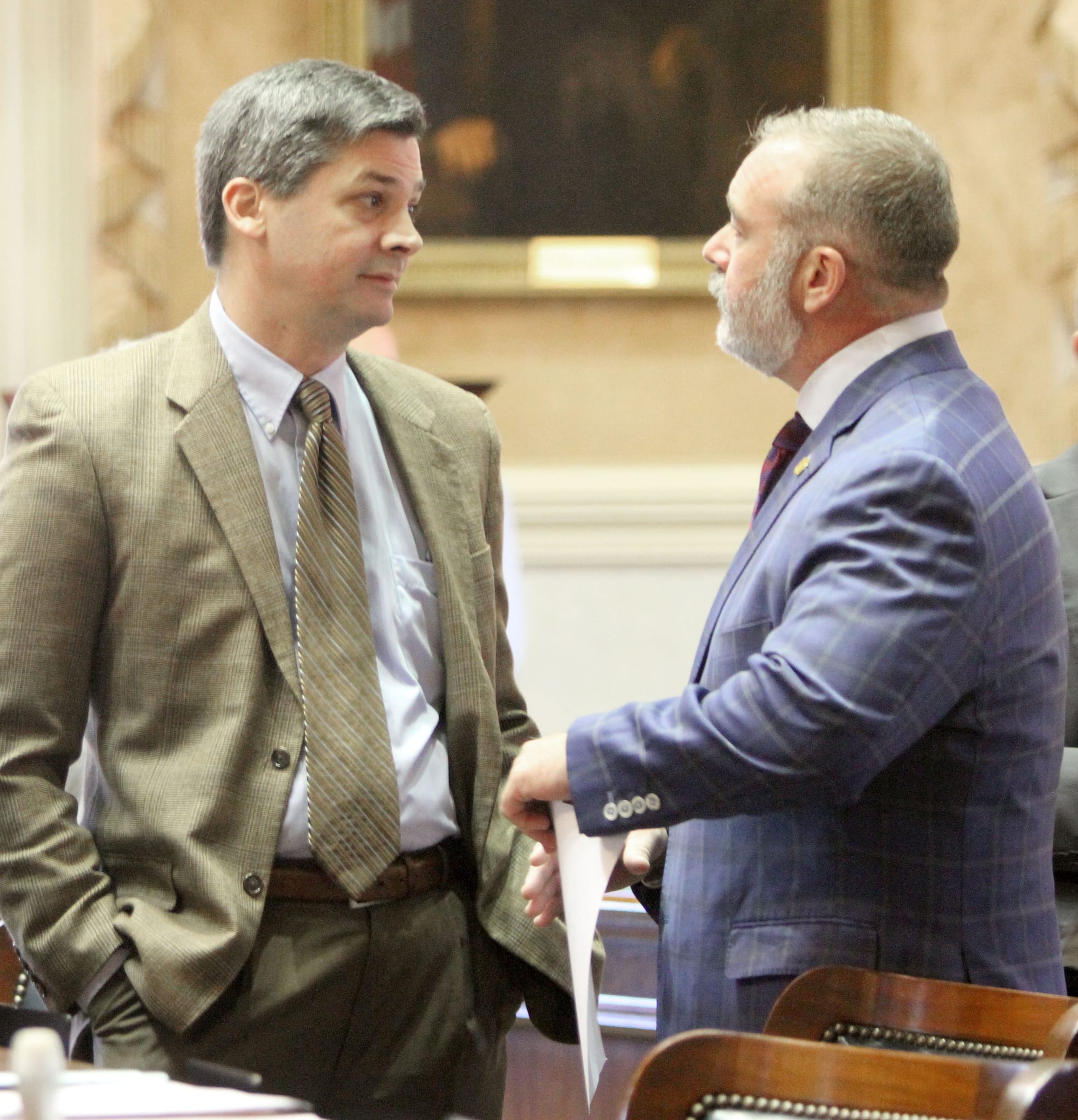
That delay has been met with antagonism from the lower chamber, where Republican House Speaker G. Murrell Smith, Jr., the bill's main sponsor, has tacked its language onto other legislation in attempts to get the Senate to debate the measure before the end of the legislative session.
So far, Smith’s maneuvering has met with little success. He did not respond to multiple requests for comment or to detailed written questions. “I have a lot of questions,” said state Sen. Wes Climer, R-Rock Hill, another member of the upper chamber who is all for taking it slow. “And given the complexity of the issues at hand, the state would be better off being right than fast.”
State-owned electric utility Santee Cooper backs the bill.
“We do need new energy capacity as a state,” Mollie Gore, director of corporate communications and external affairs, said in a written statement. “And Santee Cooper needs additional capacity to meet the needs of our growing customer base as a part of that.”
Neither Duke nor Dominion, two investor-owned power companies that service the state, responded to requests for comment.
Demand spikes in the Southeast
The debate around the bill is a microcosm of an argument raging across the Southeast United States, where power companies are responding to jumps in electricity demand emanating from new data centers, electrification and industrial growth including cryptocurrency mining.
And their main response has been to ask regulators for permission to build lots and lots of new gas plants. Demand for methane in South Carolina rose by more than 43% between 2012 and 2022.
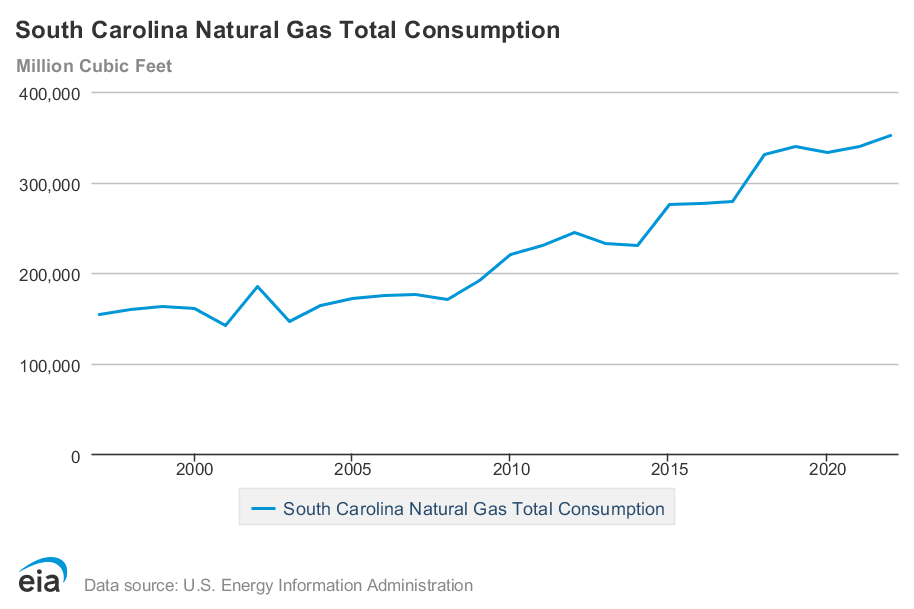
The Southern Environmental Law Center estimates that Southeastern utilities plan to build at least 33 gigawatts of new methane gas plants. If built, the plants would effectively thwart attempts to wean the region's grid off of its long-time reliance on planet-warming fossil fuels.
“So the so-called emergency of immediate load growth is being used as a general rollback of utility regulation," said Moore of the Southern Alliance for Clean Energy, “But it's not just a general rollback of utility regulation. It's in service particularly of the gas expansion in the Southeast.”
Proposed protection rollback prompts resignation
As the South Carolina Energy Transformation Act sped through the state’s lower chamber in March, one energy regulator was so alarmed that he resigned in protest.
“House Bill 5118 would remove important regulatory guardrails,” PSC Commissioner Tom Ervin wrote in his resignation letter, “resulting in dramatic changes in existing law which will give investor-owned utilities a blank check with guaranteed profits resulting in much higher utility rates for residential customers.”
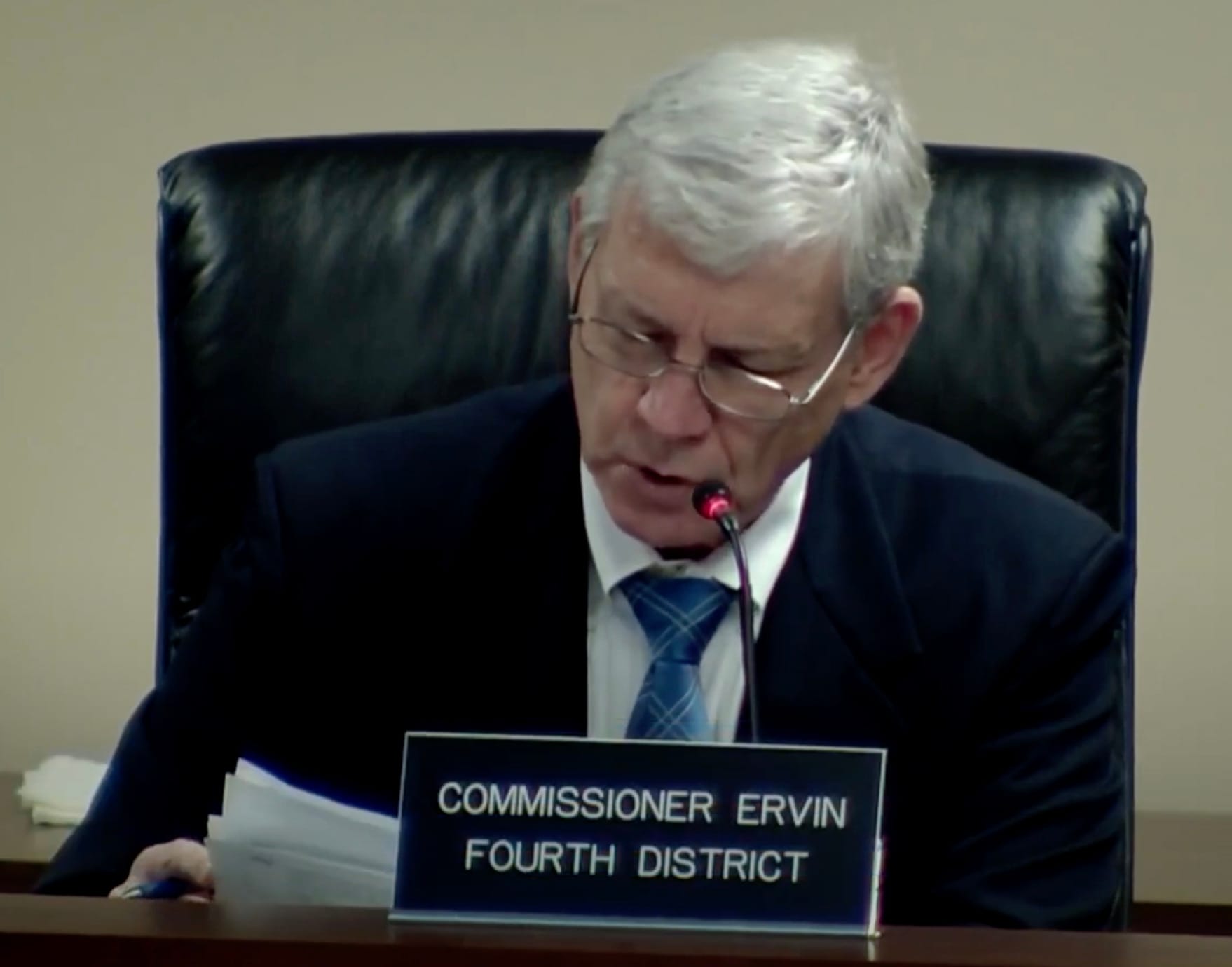
The rollback of consumer protections was radical enough to turn one of the bill’s House sponsors into a ‘no’ vote.
“Not only is it a consolidation of power, it creates a situation where there is less diversity — not just race and gender but diversity as well of different needs and concerns and values.” said Rep. Ivory Thigpen, D-Columbia, who chairs the state’s Legislative Black Caucus and who initially co-sponsored the legislation.
Thigpen echoed Ervin’s critique of the bill.
“Many feel like this is another blank check to gas, oil, petroleum companies with unchecked measures that ultimately put the ratepayers and the citizens of South Carolina on the hook,” he said.
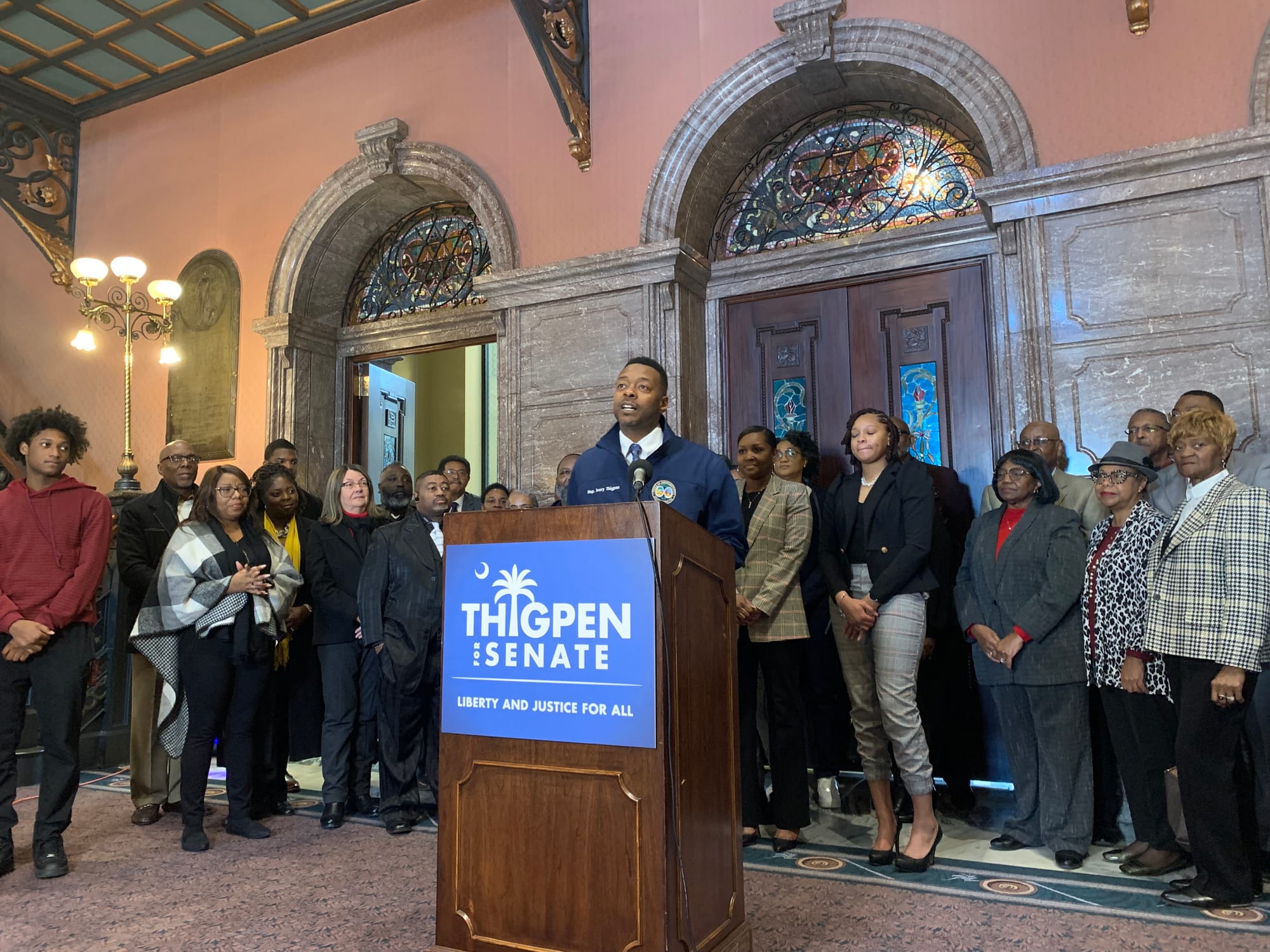
Gas, gas and more gas
The bill doesn’t just roll back consumer protections — it also would circumvent the normal regulatory process and give Dominion and Santee Cooper the green light to construct a 2-gigawatt methane gas plant on the site of a shuttered coal plant in Canadys, South Carolina.
Tyler Norris, a former energy company vice president and now a doctoral student studying energy systems at Duke University, points out that the regulatory system currently in place in South Carolina is designed to rigorously evaluate whether or not the need for such a plant really exists — and if a big, methane-burning gas plant is the best way to meet it.
“The way we do resource planning in the electric power sector is not to have legislators directing specific capacity expansion and resource plans,” Norris said. “That's just not generally the way you do systems planning.”
Gore, the Santee Cooper spokesperson, said current state law does not allow her company to partner with Dominion on such a project. “The energy bill includes a provision that would allow such partnerships,” she said. The bill also includes language that would authorize Santee Cooper to serve as the “anchor subscriber” for new pipelines, a move that John Tynan, president of Conservation Voters of South Carolina, said would pave the way for construction of more methane gas pipelines.
Gillian Giannetti, senior attorney at the National Resources Defense Council, said the proposal fits a pattern of “certain states in the Southeast in particular being a bit shortsighted in terms of their energy planning and leaning into what the utilities say is needed without being as critical or evaluative in those assertions.”
Despite its rapid trip through the legislative process, there’s no guarantee the measure will pass by the time South Carolina’s session wraps up May 9.
Said Massey, the Senate leader: “I think this bill has a very very tough uphill climb in order to make it.”


